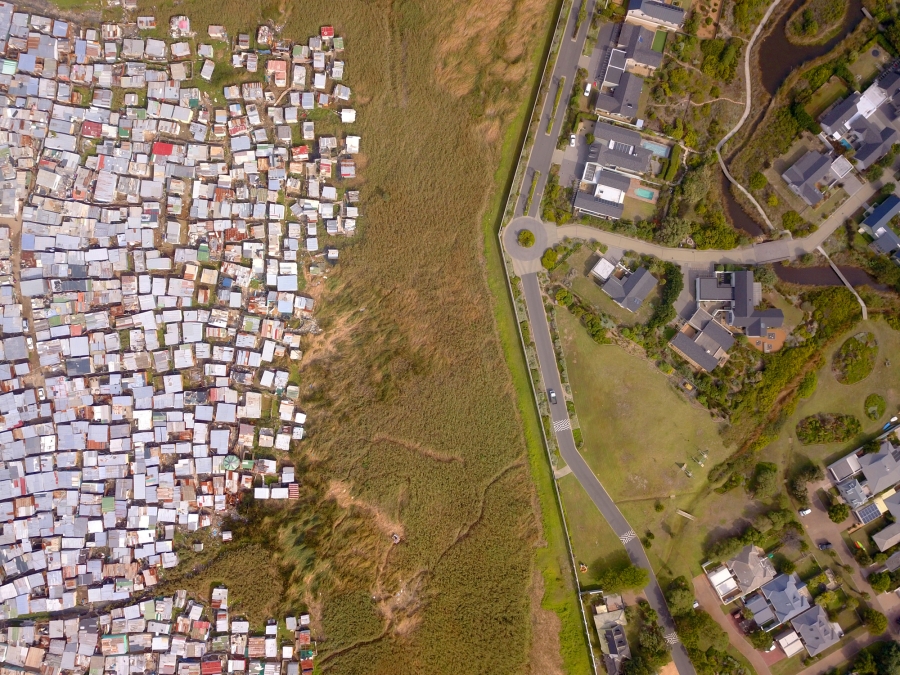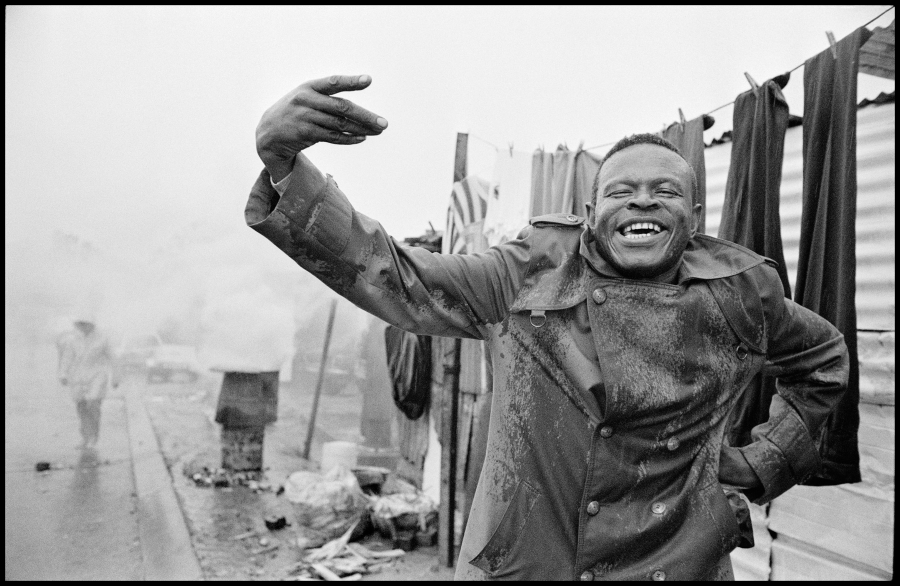“We recognise humanity as one family and we acknowledge that our loyalty to our humanity transcends all others such as those of nationality, race or religion"
We Are One by Simenon Honoré
Recognising our shared humanity is a fundamental principle in our spiritual evolution. It offers a future in which we can all live and work together constructively and in peace. So the ending of apartheid in South Africa in the early 1990s was a major step forward not only for the country itself but for humanity as a whole. In this article, Thérèse, our South African Editor, looks back at the transition from apartheid to a multi-racial society from a personal perspective.
A county of contradictions
Trying to make sense of South Africa today can make your head spin. A country of paradoxes, its abundant natural beauty and vibrant culture sit in sharp contrast to its endemic poverty, crumbling infrastructure and staggering unemployment. On the one hand, there’s an intense shared national pride. On the other, deep social, economic and racial divisions. More millionaires than any other African country vs over half the population living below the poverty line. The crime, the corruption, the apparent cheapness of life, vs an extraordinary generosity of spirit and hunger to achieve. Anger, hatred and despair vs resilience, resourcefulness and hope. Will the real South Africa please stand up?

Aerial view showing the contrast between a township and an affluent suburb in South Africa
I grew up as a privileged white person under the shadow of apartheid. A beneficiary, there’s no getting away from that. While others were less-than citizens, doors opened for me. I knew I was no better than anyone. Did I always act like that? I’m sure I didn’t. Despite growing up in a relatively liberal home, I was nonetheless accustomed to the separate lives we all lived. Silo suburbs were the norm. Silo schools too. Different benches for you and me. Different jobs, different aspirations. “Master” vs “boy”. At university there was the illusion of freedom, mass meetings shouting down the government. But the repression continued. Worsened. Armoured vehicles in the townships, keeping the “peace”.
As the people mobilised, the regime clamped down even more. But even the censored press could not hide that things were coming to a head. Without freedom for all, we were all captives of the state, and it could not hold.
Those days I felt apart from my country. A disjointed citizen. I remember going to a concert in Zimbabwe in the early 80s. As I crossed the border, I felt a weight slip from my shoulders. This was a free country. The background noise of unconscious tension was gone.
For we lived in the chasms of a country rent by greed and fear and insecurity. Most of us looked away, scared or indifferent. Those who faced down the darkness felt the sting of apartheid’s lash. Yet we were all of us choked by the yoke of its unequal laws, even those who supported them. Because they held the country back on every level. Things could only end badly. Unless.
The rainbow nation era
It seemed like a miracle when the ruling white Nationalist Party ended apartheid in 1993. Most of us donned rose-coloured glasses and danced for joy. Did we whites open our hearts and seek forgiveness? Pitifully few of us. But the old “normal” was out. The relief was palpable. Anything was possible!

A man rejoices in the rain after the democratic elections have taken place.
Alexandra Township, Johannesburg, South Africa, 1994.
Soon after, I went with a friend to watch a football match in Soweto. A derby, fraught with sporting factions. A black man. A white woman. When the crowd noticed us, they made space for us to sit. They cheered us, though we had done nothing to deserve the accolade. Just added colour to the occasion.
How though, do you move on? How do you create a cohesive society when you’ve systematically ignored the humanity in others? When you’ve deliberately driven a wedge between yourself and your compatriots? When you expect those who have suffered for generations to turn the other cheek?
If you pretend nothing has happened, you’ll just keep making the same mistakes.
Acknowledging the wrong
You learn as a child that if you hurt someone, you need to acknowledge it, say sorry and ask forgiveness. Don’t expect gratitude for your apology. Rather, you must endure the full blast of their anger and pain until it is burnt out. If you can at least do that, both that person – and you – have a chance to heal.
So it follows that if we hurt an entire community, there has to be some kind of atonement. Collectively, we as perpetrators, must openly acknowledge the harm we did. Otherwise the wound will fester in both of us. In them, because of the injury done to them. In us, because we carry the knowledge that what we did was wrong. As the Anglican Archbishop and activist, Desmond Tutu, said, “If I undermine your humanity, I dehumanise myself.”
In either case denial is a burden. It means we both lose out unless we reach out across the divide and engage in dialogue. Unless we recognise the other’s humanity.
The Truth and Reconciliation Commission set up in 1995 by the Government of National Unity (GNU), and chaired by Tutu, attempted to do something like that. It allowed victims and witnesses to publicly testify their experiences under apartheid. It was contested by some for not going far enough, by others for “dwelling on the past”. While not perfect, it was a useful platform for both victims and perpetrators to begin reconciling and healing the nation. It was only a start though. Small blasts of truth.
Archbishop Desmond Tutu hands over the final report from the Truth & Reconciliation Commission
to President Nelson Mandela in Pretoria in 1998
What’s changed?
Thirty years on, like so many countries grappling rising nationalism, divided communities, the widening gap between rich and poor, a reactionary media, it’s hard to find any good news. Yes, we can be friends with whoever we want, go wherever we want, but very little has changed in the life of the average South African. Politicians bark at each other. Chat shows reflect entrenched attitudes and intolerance. We seem further apart than ever. And yet.
There was no outright winner in the 2024 elections. The formation of another GNU obliged our politicians to swallow a dose of cooperation. Whether their conflicting agendas will allow them to make a go of it remains to be seen, but I find the symbolism of the motto on the country’s coat of arms, “Unity in Diversity”, apt.
I chatted recently to a colleague about our government. He thinks they are not doing a good job. His community is apathetic about voting. They would not dream of voting for the main opposition Democratic Alliance, often labelled a “white” party. And for them, no other party seems a viable alternative to the ruling ANC. No one is budging from those silos. The political divide is colour coded. Corruption is colourblind. My colleague lives in a township. Two of his family members were murdered last year. Gunshot at nighttime is rife. That’s “normal” for him. It saddens me that the hard-won freedom of the liberation struggle heroes has yielded so little real change. Our constitution is one of the most inclusive and equitable in the world. We need to live up to it.
Humanity is also colourblind. As South Africa matures as a nation, we need to accept criticism where it is valid and learn from our mistakes. Like many, I believe diversity is South Africa’s strength. And there is an unquantifiable generosity in the way many South Africans interact. Despite our history. Perhaps because of it. We know we are in this together. In spite of our differences, we know we need each other. By sharing our opinions and the experiences of our different backgrounds we will bring more perspective to the decisions we make. We will be more creative in finding solutions to our problems. By focusing on our common humanity and committing to making the changes necessary to transform the lives of all for the better – regardless of political affiliation – we can create a country where all can flourish. All we need is the will to stand up. All we need to do is open our hearts. Anything is possible.
By Thérèse Barton & Simenon Honoré
Find out more about the book We Are One by Simenon Honoré.
The opinions expressed in this article do not necessarily reflect the views of Spirit of the Rainbow.
If you enjoyed this article, share it with a friend. And why not sign up for our newsletter?
Popular posts
You might also like
Email Newsletter Our latest articles and offers delivered straight to your inbox.
Our latest articles and offers delivered straight to your inbox.